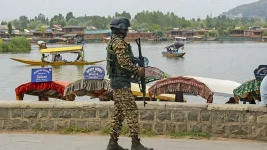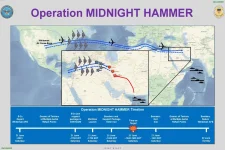- Views: 1K
- Replies: 13
At the 21st Subroto Mukerjee Seminar, Indian Air Force Chief Air Chief Marshal A.P. Singh expressed his concern over the continued delay in the delivery of the first 40 Tejas aircraft, an order placed over a decade ago.
This statement comes at a time when regional adversaries, especially China, are rapidly advancing their aerial warfare capabilities, with recent reports confirming China's test flight of a highly advanced sixth-generation fighter jet.
The situation has triggered reactions beyond India's borders, particularly among Pakistani social media users on X (formerly Twitter). Some accounts, allegedly backed by Pakistan's ISI (Inter-Services Intelligence), have seized upon this delay to provocatively suggest that India's current fighter jet procurement situation presents an opportunity for Pakistan to initiate conflict and "reclaim" Kashmir. However, these calls for conflict seem to overlook crucial strategic and economic realities.
Firstly, Pakistan is grappling with severe economic turmoil, including soaring inflation, dwindling foreign reserves, and a mounting debt crisis. Engaging in another conflict with India, which would inevitably require significant financial resources, appears highly improbable given the country's precarious economic situation.
Secondly, the notion that air superiority alone can determine the outcome of a conflict is a flawed understanding of modern warfare. The ongoing Russia-Ukraine war serves as a stark reminder. Despite possessing a formidable air force, Russia has struggled to achieve complete air dominance over Ukraine. This demonstrates that ground operations, logistics, and international support play vital roles in modern warfare.
Furthermore, India has significantly invested in sophisticated air defence systems like the S-400 Triumf from Russia and the indigenous Medium Range Surface-to-Air Missile (MRSAM). These systems provide a robust shield against aerial threats, significantly diminishing the effectiveness of any potential Pakistani air incursions.
The aggressive rhetoric on X from Pakistani handles appears to disregard the complexities of modern warfare, where air superiority is just one element of a much larger strategic picture. India's air defence systems, coupled with its formidable ground forces and strategic alliances, create a multi-layered defence strategy that would make any military adventure by Pakistan extremely challenging and potentially disastrous.
While the delay in the Tejas program is a matter of concern for the IAF, it is crucial to remember that India's defence capabilities extend far beyond any single aircraft program. Pakistan's social media provocations, fueled by a narrow and unrealistic view of modern warfare, should not be misconstrued as a genuine threat to India's security.


